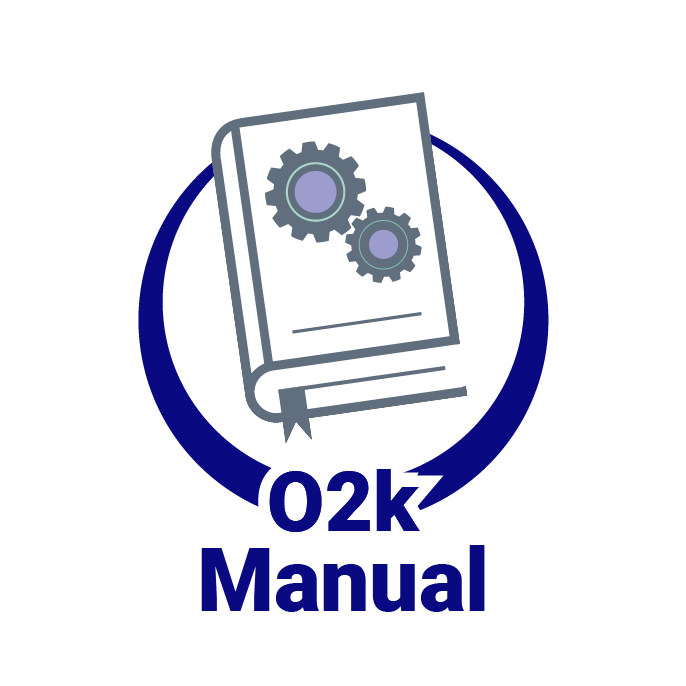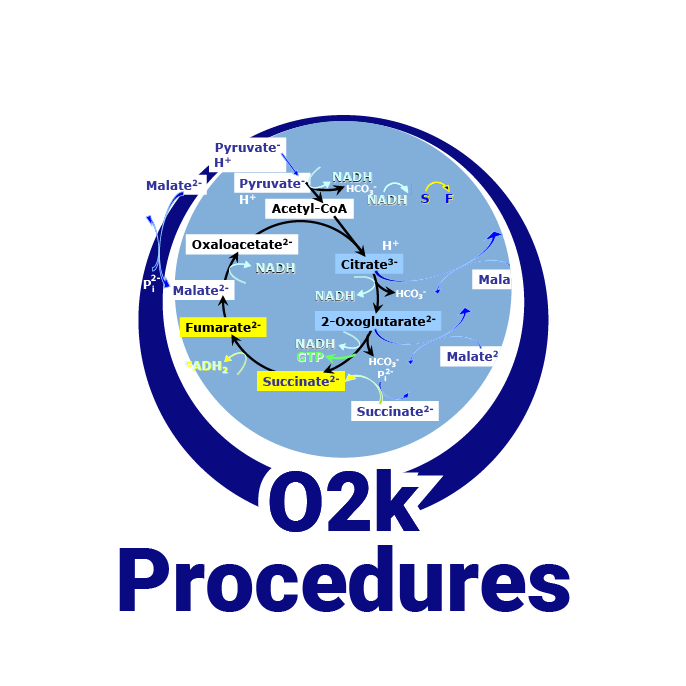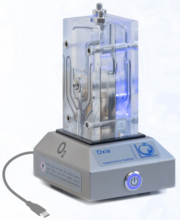Difference between revisions of "Oxia"
Tindle Lisa (talk | contribs) |
Tag: Reverted |
||
| Line 1: | Line 1: | ||
{{MitoPedia}} | |||
{{MitoPedia concepts}} | |||
{{MitoPedia methods}} | |||
{{MitoPedia O2k and high-resolution respirometry | |||
|mitopedia O2k and high-resolution respirometry=O2k-Open Support, O2k-Respirometry, O2k-FluoRespirometry | |||
}} | |||
{{MitoPedia topics}} | |||
{{Technical support}} | {{Technical support}} | ||
__TOC__ | __TOC__ | ||
{{MitoPedia without banner | {{MitoPedia without banner | ||
|abbr= | |abbr= | ||
|description=[[Image:Oxia.png|180px|right]]'''Oxia - HyperOxia to HypOxia''': The Oxia generates gaseous [[oxygen]] and [[hydrogen]] by electrolysis of water using a proton exchange membrane (PEM). O<sub>2</sub> and H<sub>2</sub> gas can be used to control the O<sub>2</sub> regime in the Oroboros O2k. Low oxygen concentrations (<50 µM) are used to mimic tissue [[normoxia]] or [[hypoxia]]. Hyperoxic conditions above air saturation (250-600 µM O<sub>2</sub>) are routinely used for high-resolution respirometry of [[permeabilized muscle fibers]] or to induce oxidative stress in cells and [[mitochondrial preparations]]. | |description=[[Image:Oxia.png|180px|right]]'''Oxia - HyperOxia to HypOxia''': The Oxia generates gaseous [[oxygen]] and [[hydrogen]] by electrolysis of water using a proton exchange membrane (PEM). O<sub>2</sub> and H<sub>2</sub> gas can be used to control the O<sub>2</sub> regime in the Oroboros O2k ([[Setting_the_oxygen_concentration]]). Low oxygen concentrations (<50 µM) are used to mimic tissue [[normoxia]] or [[hypoxia]]. Hyperoxic conditions above air saturation (250-600 µM O<sub>2</sub>) are routinely used for high-resolution respirometry of [[permeabilized muscle fibers]] or to induce oxidative stress in cells and [[mitochondrial preparations]]. | ||
|info= [https://www.oroboros.at/index.php/product/oxia/'''Product details and purchasing information'''] | |info= [https://www.oroboros.at/index.php/product/oxia/'''Product details and purchasing information'''] | ||
| Line 11: | Line 18: | ||
::::» [https://wiki.oroboros.at/images/f/fa/Oxia_CB-Certification.pdf CB-Certification] | ::::» [https://wiki.oroboros.at/images/f/fa/Oxia_CB-Certification.pdf CB-Certification] | ||
::::» [[Oxygen]] | ::::» [[Oxygen]] | ||
::::» [[Hydrogen]] | ::::» [[Hydrogen]] | ||
Revision as of 12:51, 10 March 2023
Description
MitoPedia O2k and high-resolution respirometry:
O2k-Open Support,
O2k-Respirometry,
O2k-FluoRespirometry
 |
Oxia |
MitoPedia O2k and high-resolution respirometry:
O2k-Open Support
Description
Oxia - HyperOxia to HypOxia: The Oxia generates gaseous oxygen and hydrogen by electrolysis of water using a proton exchange membrane (PEM). O2 and H2 gas can be used to control the O2 regime in the Oroboros O2k (Setting_the_oxygen_concentration). Low oxygen concentrations (<50 µM) are used to mimic tissue normoxia or hypoxia. Hyperoxic conditions above air saturation (250-600 µM O2) are routinely used for high-resolution respirometry of permeabilized muscle fibers or to induce oxidative stress in cells and mitochondrial preparations.
Reference: Product details and purchasing information






